Hair is considered as a sign of beauty and one of the first things that we notice about people. Hair plays a major role in framing one’s personality. Treated as a piece of art, a head full of thick, shiny and bouncy hair can change your look completely. On the other hand, a receding hair line and hair loss can really get you stressed!
Hair loss can occur anywhere on the body, but it most commonly affects the scalp. The scalp has around one lakh hair that are in a continuous cycle of growing, resting, falling and regeneration. Mostly people lose around 50 to 100 strands of hair per day which is natural and part of the cycle. If this cycle is disturbed or there is damage to hair follicles, it will lead to falling of greater number of hair than the number being regenerated. Hair fall can occur in various ways such as hair coming out in clumps, receding hairline and thinning of hair1,2.
A host of reasons can cause hair fall, one or more:
It is the most common reason for hair loss affecting both men and women world-wide. Genetics do play a big role in lack of a crown of thick hair3.
Ageing leads to slowing of hair growth. At certain point in our lives, hair follicles stop growing hair, which causes thinning of hair. Hair also loses its colour too with age3.
Alopecia areata is an auto-immune disease in which body’s immune system attacks hair follicles (which hold the hair to the scalp) leading to hair loss3. This condition requires medical intervention, therefore, do not self-diagnose or take medications without proper consultation.
After a few months of giving birth, mothers may experience extensive hair fall due to a change in the hormone levels during and after pregnancy3.
Polycystic Ovarian Syndrome (PCOS) leads to the formation of cysts in the ovaries. It is accompanied by other signs and symptoms, one of the most common ones being hair loss3. Furthermore, inform your doctor if you have any history of allergy to medicines (if experienced in the past)
Alopecia means hair loss. In this condition, inflammation destroys the hair follicles. Once the hair follicles are destroyed, they can never grow hair3.
Reduced or excessive functioning of the thyroid both can lead to thinning of hair. Sometimes hair also comes out in clumps while combing or brushing the hair3.
People who have psoriasis, an auto-immune skin condition, may eventually develop psoriasis on their scalp. This can be extremely painful and leads to ample hair loss3.
Chemotherapy or radiation therapy as part of cancer treatment may lead to complete or partial loss of hair within a few weeks of treatment3.
When there is a deficiency of biotin, iron, protein or zinc nutrients, it leads to hair loss3. Lastly, hair fall can also happen due to severe side effects of certain medications or treatments.
Hair loss due to a hormone imbalance is not always permanent; in some cases, thicker hair can regrow after restoring hormonal equilibrium. However, this process may take several months or even years, depending on the severity of the imbalance and any underlying medical conditions like hypothyroidism.
Dr. M.G. Kartheeka, MBBS, MD(Pediatrics)
If you keep suffering from hair loss, you can never have thick hair4. A few people may develop other signs and symptoms along with hair loss as follows:
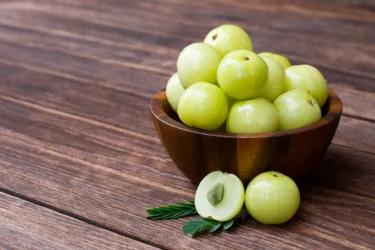
Amla or Indian gooseberry contains tons of vitamin C, and other beneficial compounds like gallic acid and quercetin. Together these provide immense nutritional support towards achieving thick tresses. Amla oil can be prepared by boiling dry amla pieces in coconut oil. It works as a wonderful hair tonic that helps in hair growth. You can also mix fresh amla juice and lime juice and apply this to prevent hair loss and increase hair growth. Together this should help obtain thick, shiny hair5.
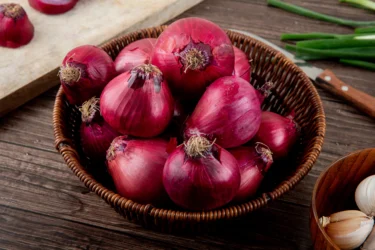
Onion is very beneficial in treating patchy baldness. Onions contain vitamin C, allicin and sulphur containing compounds that may help stimulate hair regrowth. Rub the affected area with onion juice till it becomes red. Apply honey afterwards on the same area5.
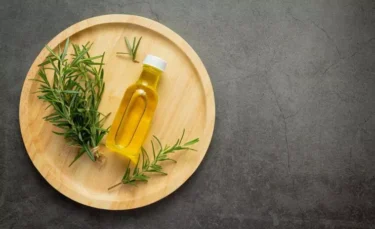
Application of rosemary and lavender oil topically on the scalp stimulates the hair follicles. Massage with these oils daily to reduce hair loss5.

Walnut oil promotes hair growth and nourishes the hair naturally. Walnuts contain iron, copper, zinc, potassium, manganese, proteins and fats. These nutrients help overcome any nutritional deficiency and achieve thick, glossy hair. Apply walnut oil on the scalp and massage it into the roots of the hair for fighting hair loss5.
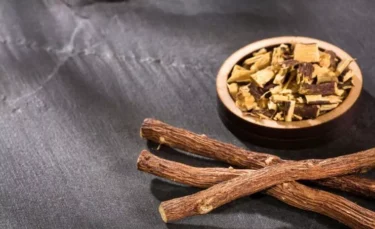
Liquorice is a very useful remedy for people dealing with patchy baldness, as it is known to help with hair growth. Chief constituents of liquorice are glycyrrhizin, potassium and calcium salt of glycyrrhizinic acid are part of. Grind the pieces of liquorice in milk and add a pinch of saffron, Make a fine paste. Now apply this paste on the bald patches before going to bed at night5.
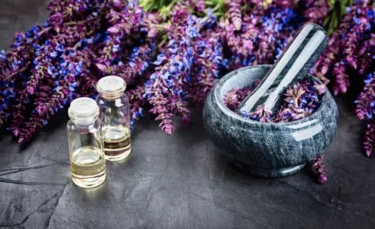
Sage helps in thickening of the hair shaft and improves blood flow to the scalp2. Mix a few drops of sage oil with a few drops of peppermint oil. Now dilute this mixture by adding olive oil. Massaging this oil mixture on the scalp may help people suffering from hair loss. Sage rinse prepare a sage and rosemary rinse by adding both the herbs in boiling water. Now rinse your hair with it to promote the thickening of hair.

Bee pollen helps in stimulating hair growth2. Mix bee pollen with hot water to make a mask and apply this hair growth mask on your hair. You can also add bee pollen directly to your shampoo to give a boost to your hair with every hair wash.
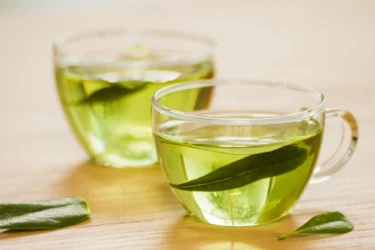
Green tea helps in decreasing hair loss and stimulates in the growth of strong and thick hair2.

Hibiscus helps in dense hair growth by improving blood flow to the scalp2. Grind a few hibiscus leaves with flowers and some fresh yoghurt to make a paste. Now apply this paste on your hair leave it for an hour. Later, rinse it off with the help of lukewarm water and a mild shampoo.
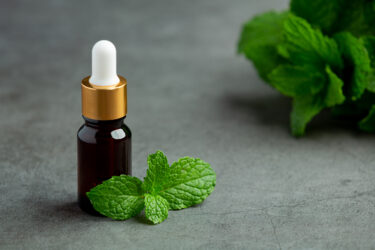
Peppermint is a very effective therapeutic agent that promotes hair health6. Massage peppermint oil directly on the scalp. Wash the hair with mild shampoo afterwards.
Refer to the doctor immediately if you notice the following:
Using the right shampoo preferably sulfate free which cleanses the scalp and the right conditioner that boosts hydration is helpful to maintain healthy and thick hair.
Dr Ashish Bajaj, M.B.B.S, M.D. in Clinical Pharmacology and Toxicology
Hair plays an important role in framing the personality and appearance of a person. It has both psychological and sociological importance. Everyone wants to have thick hair as it adds to confidence and brings that spring in the step of every girl for sure. Needless to say, hair loss is a big concern these days. Reasons for hair loss can vary from genetic, thyroid disorders, PCOS, cancer, psoriasis, nutritional deficiency, etc. But it’s important to know that you shouldn’t self-medicate, instead seek professional help. Various herbs are found to be useful in thickening of hair. Simple home remedies with amla, onion, sage, liquorice, hibiscus, green tea, walnut, rosemary, lavender, etc. are found to promote hair growth in some people.
There is no evidence to support that shaving of scalp helps in thickening of hair.
There is no study to support the role of dandruff in hair loss.
Use of herbs such as hibiscus, sage, alma, liquorice, etc. are found to be very useful in hair growth2,5.
After few months of child birth mother can experience extensive hair fall3.
Nutrients such as biotin, iron, protein, zinc, etc. helps in thickening of hair3.
Alopecia refers to the loss of hair1.
Disclaimer: The information provided here is for educational/awareness purposes only and is not intended to be a substitute for medical treatment by a healthcare professional and should not be relied upon to diagnose or treat any medical condition. The reader should consult a registered medical practitioner to determine the appropriateness of the information and before consuming any medication. PharmEasy does not provide any guarantee or warranty (express or implied) regarding the accuracy, adequacy, completeness, legality, reliability or usefulness of the information; and disclaims any liability arising thereof.
Links and product recommendations in the information provided here are advertisements of third-party products available on the website. PharmEasy does not make any representation on the accuracy or suitability of such products/services. Advertisements do not influence the editorial decisions or content. The information in this blog is subject to change without notice. The authors and administrators reserve the right to modify, add, or remove content without notification. It is your responsibility to review this disclaimer regularly for any changes.
Do you know that our delicate lips, such an exposed and attractive part of our face, have no oil glands? This is why lips are more sensitive and crack on exposure to dry or cold weather. Dry lips, chapped lips or cracked lips are the same and are medically referred to as cheilitis. The skin on our lips is thinner than the rest of our body, due to which they are more prone to changes in extreme weather conditions, increasing their chances of getting chapped. This is why we commonly experience dry lips during winters. There is no need for any test to diagnose this condition, as looking at the lips is sufficient to know exactly what’s going on1.
The lips of anyone, at any age, can get chapped. Some of the major causes are1:
You can recognize if you have chapped or dry lips by making a note of the following symptoms:
To protect our lips from severe environmental conditions, we usually apply formulations known as lip balms. They help in keeping the lips moist, preventing further drying. Unfortunately, most lip balms available on the market are made up of chemical substances2. As an alternative, several natural substances can be used as home remedies for cracked lips. They can be used throughout the day and can also be used for more intense treatment at night.

Virgin coconut oil has several properties which makes it ideal for use as a lip balm. It moisturises the skin of lips, preventing dryness and giving them a healthy look. It may even help in keeping lips free of germs, preventing infection, owing to its potential of disinfecting and antimicrobial properties. Furthermore, its properties of easy spreading, smoothness and stability at room temperature make it easy to use3. We can use it by gently dabbing it onto our lips in the morning and at night as many times as needed.
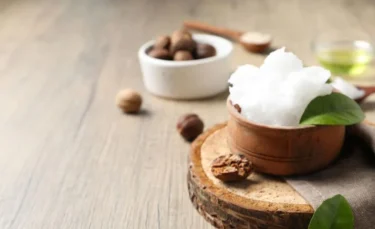
Shea butter is the fat extracted from the nut of the African shea tree. It is off-white or ivory in colour and is a common ingredient in many moisturisers. It acts as a rich softener and moisturiser for the skin, hair and scalp due to its semi-solid properties and buttery consistency. It also shows sun-screening activity, thus protecting against sunburns4. Therefore, shea butter can be a great addition for your lip care routine in winters. It can be used directly or by mixing with other oils for application over the lips.
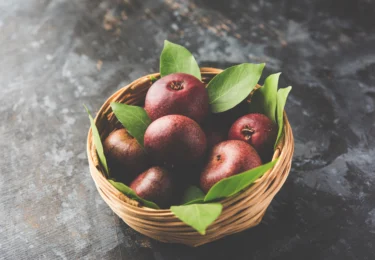
Kokum seeds are used for obtaining kokum butter. It is a hard butter and is a stable solid. Kokum butter is used in the manufacture of soaps, moisturisers and cosmetics. It is a natural moisturiser and helps keep the skin smooth, supple and silky. Thus it’s a common favourite to treat severely dry skin, fissures of lips and lip ulcerations5. We can use it to make lip balms at home by mixing other ingredients, or we can directly apply it to dry or cracked lips.
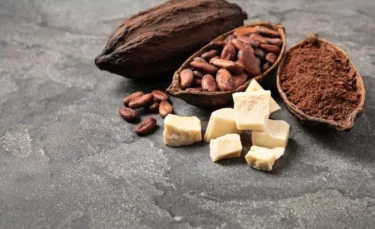
The beans of cocoa are the source from which cocoa butter is obtained. Apart from chocolate that we all love, cocoa beans provide butter that is fat-rich and provides a creamy softness. It provides intense nourishment to our lips, moisturises them and helps them heal when they are dry and chapped. In addition, it contains antioxidants (free radical neutralising compounds)2. Cocoa butter is commercially used in making lip balms and lotions. It can also be used to make homemade lip balms for application over dry lips. We can simply use it by mixing it with another oil as well.
Ghee is naturally a powerful carrier. Even the smallest amount of ghee on lips can keep them hydrated and moisturised for a lot longer than an average Chapstick. Ghee on Lips can exfoliate and lighten dark Lips -Ghee on Lips can make your lips appear plumper – Ghee is extremely emollient
Dr. M.G. Kartheeka, MBBS, MD(Pediatrics)
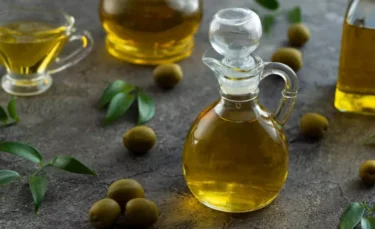
Olive oil has been in use for skin problem for ages in various parts of the world. Animal studies have shown that olive oil has properties such as reduction of oxidative stress (antioxidant), alleviation of inflammation (anti-inflammatory) and promotion of skin regeneration, which are beneficial for the healing of the skin6. Therefore, olive oil can also be used to heal the cracked skin of lips. We can directly apply it over cracked lips. Consuming olive oil by utilising it for cooking has also been suggested.
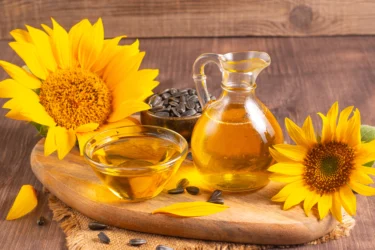
Sunflower seed oil contains high amounts of a fatty acid known as linoleic acid. This makes it suitable for use in various skincare products, as linoleic acid has numerous properties beneficial for the skin. Studies have shown that sunflower seed oil provides hydration to the skin and helps in the maintenance of skin cell structure6. Thus, sunflower seed oil can be used as a home remedy for dry lips. It can be used by either direct application or in cooking.
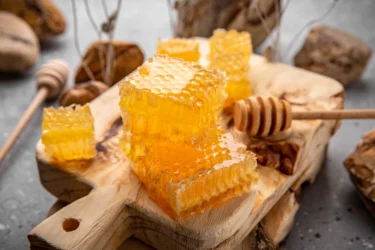
As the name suggests, it is the wax produced by bees. Waxes of various kinds are used for skincare products; among them, beeswax is very common. It is extremely helpful to help heal dry and chapped lips, as it contains natural compounds (fats) which help in moisture retention. In addition, it also protects the skin from ultraviolet (UV) radiation7. These protective effects of beeswax on the skin, especially on the tender skin of lips, make it a hit with lip balm manufacturers. We can apply beeswax on our lips after diluting it in a preferred oil. You can obtain natural beeswax and use it without any additives too. Be careful, you might want to skip beeswax if you are vegan.
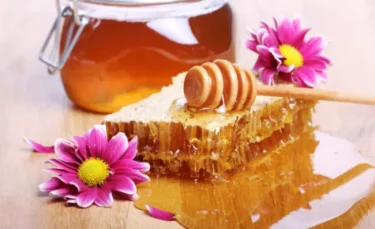
Honey is another product of a bee’s labour which is known for its innumerable uses in medicine. Honey has been used for a long time in the treatment of various skin-related diseases. It is used to treat cuts and wounds, as it promotes skin cell repair and activity against various microorganisms (antimicrobial activity). The use of honey in skincare products is extensive8. Honey can be used to heal the dry, chapped skin of lips by its application on the surface due to its moisturizing, anti-inflammatory and soothing properties.
Applying lip balm regularly, a balm with SPF 30 or higher every 2 hours when you are outdoors, should ease your discomfort. Severely chapped lips may take around 2-3 weeks to recover completely.
Dr Ashish Bajaj, M.B.B.S, M.D. in Clinical Pharmacology and Toxicology
It is advised that you should seek medical attention and consult a doctor:
Also Read: Home Remedies For Pink Lips
With increasing awareness, almost all of us make sure to follow a skincare routine, as we should be doing, but we often neglect our lips. We can protect our lips from dryness and prevent their chapping by following simple home remedies using natural products like shea butter, virgin coconut oil, honey, etc. So take care of your skin, and do not forget your lips.
Yes. Chapping of lips can be due to sunburns, hot, cold or dry weather, among many other reasons1.
Cracking of lips and slight pain in them are symptoms of dry lips. Dry lips can occur as a result of very hot, dry or cold weather, sunburns, allergies, etc. They usually heal when treated by applying lip balm or home remedies like virgin coconut oil, olive oil, honey, etc. If they do not heal over a long time and after repeated efforts, please contact your doctor1.
No. Dry lips are not caused due to calcium deficiency. There is no evidence for this myth. Drying of lips can be a result of extreme weather conditions (too hot or too cold), sunburns, dehydration, vitamin B or iron deficiency, autoimmune disorders, allergies, thyroid disorders and frequent licking of lips1.
Yes. Virgin coconut oil has a moisturising effect on the lips and helps heal dry lips3.
No. In contrast, honey is good for chapped lips, as it helps in the regeneration of its skin and promotes wound healing8.
Yes. Kokum butter can be used to make lip balms. It provides a shine and softness to the skin. It is commercially used to make cosmetics like lip balms, skin lotions, soaps, etc5.
1. Cleveland Clinic [Internet]. Chapped Lips; [cited 2022 May 19]. Available from: https://my.clevelandclinic.org/health/diseases/22005-chapped-lips
2. Kokil S, Kadu M, Vishwasrao S, Singh S. Review on Natural Lip Balm. Int J Res Cosmet Sci 2014 Aug;5(1):1-7. Available from: https://www.researchgate.net/publication/301204451_Review_on_Natural_Lip_Balm/link/570c7e5008ae8883a1ffeed2/download
3. Pandiselvam R, Ramarathinam M, Beegum S, Mathew AC. Virgin Coconut Oil Infused Healthy Cosmetics. Indian Coconut J 2019 Sept;1:30-2. Available from: https://www.researchgate.net/publication/336232293_Virgin_Coconut_Oil_infused_healthy_cosmetics
4. Israel MO. Effects of Topical and Dietary Use of Shea Butter on Animals. Am J Life Sci. 2014 Nov;2(5):303-7. Available from: https://www.researchgate.net/publication/277021242_Effects_of_Topical_and_Dietary_Use_of_Shea_Butter_on_Animals/link/555f900508ae9963a118b426/download
5. Chate MR, Kakade SB, Neeha VS. Kokum (Garcinia indica) Fruit: A Review. Asian J Dairy Food Res. 2019 Oct;38(4):329-32. Available from: https://www.researchgate.net/publication/340640816_Kokum_Garcinia_indica_Fruit_A_Review
6. Lin TK, Zhong L, Santiago JL. Anti-inflammatory and skin barrier repair effects of topical application of some plant oils. Int J Mol Sci. 2018 Dec;19(1):70. Available from: https://www.ncbi.nlm.nih.gov/pmc/articles/PMC5796020/pdf/ijms-19-00070.pdf
7. Kasparaviciene G, Savickas A, Kalveniene Z, Velziene S, Kubiliene L, Bernatoniene J. Evaluation of Beeswax Influence on Physical Properties of Lipstick Using Instrumental and Sensory Methods. Evid Based Complement Alternat Med. 2016 Oct;2016:3816460. Available from: https://www.ncbi.nlm.nih.gov/pmc/articles/PMC5141539/pdf/ECAM2016-3816460.pdf
8. McLoone P, Oluwadun A, Warnock M, Fyfe L. Honey: A Therapeutic Agent for Disorders of the Skin. Cent Asian J Glob Heal. 2016 Nov;5(1). Available from: https://www.ncbi.nlm.nih.gov/pmc/articles/PMC5661189/pdf/cajgh-05-241.pdf
Disclaimer: The information provided here is for educational/awareness purposes only and is not intended to be a substitute for medical treatment by a healthcare professional and should not be relied upon to diagnose or treat any medical condition. The reader should consult a registered medical practitioner to determine the appropriateness of the information and before consuming any medication. PharmEasy does not provide any guarantee or warranty (express or implied) regarding the accuracy, adequacy, completeness, legality, reliability or usefulness of the information; and disclaims any liability arising thereof.
Links and product recommendations in the information provided here are advertisements of third-party products available on the website. PharmEasy does not make any representation on the accuracy or suitability of such products/services. Advertisements do not influence the editorial decisions or content. The information in this blog is subject to change without notice. The authors and administrators reserve the right to modify, add, or remove content without notification. It is your responsibility to review this disclaimer regularly for any changes.
Do you see blue or purple veins bulging out of your skin? These spiraling lines can make people conscious of their appearance. The presence of swollen and prominent veins on the feet and legs is called varicose veins. Varicose veins are primarily dark purple or blue in colour and appear twisted, lumpy or bulging. Varicose veins usually do not cause any serious issues or discomfort. If you suffer from varicose veins and they do not cause any pain or discomfort, you might not require consultation from your doctor1. Varicose vein is a common problem, chances of which increase with the increase in age, if you are female, do not exercise, have obesity or have a family history of varicose veins. It is also more common in pregnancy2.
In some cases, if the varicose veins, often called as spider veins, become too noticeable, They might cause discomfort and embarrassment to people3.
An increased blood pressure in the veins is the primary cause of varicose veins. The mechanism of how a varicose vein is formed is given below:
The valves can become weakened or damaged due to many reasons such as:
Also Read: Natural Home Remedies for Leg Pain
Did you know?
The primary symptom of varicose veins is the appearance of dark purple- or blue-colored veins under the skin surface. Other symptoms of the varicose vein are:
The saphenous veins are in your legs, they become significantly larger and swollen than normal. This makes them clearly visible as they will push the skin and protrude like mini-ropes. They can have some colour or be colourless.
These are smaller in size but spread in a network of reddish, greenish or purplish colors. They cover large sections of the body and although they do not stick out as much as saphenous veins, they can be very obvious against your skin.
These are thinner and smaller compared to the previous types and also spread in a web-like fashion. They can be reddish or bluish in colour.
Varicose veins are frequently complicated by varicose ulcers which may take many months or years to heal and treatment for them is aimed at preventing infection and speeding up healing.
Dr. Ashish Bajaj, M.B.B.S., M.D. in Clinical Pharmacology and Toxicology
If the varicose veins on your body bother you, you can take these steps at home to enhance your blood circulation in the legs and improve varicose veins.

Elevating your feet above the level of your heart several times a day can help you reduce the symptoms of varicose veins. You can do this by lying down and putting some pillows below your feet. For mild-to-moderate varicose veins, leg elevation will help you improve the blood flow back to the heart and reduce the swelling of the varicose vein3.
Varicose veins are often complicated by pain in the legs, ankles and knees, which usually get better as you allow your legs to rest, and keep them in an elevated position, thus reducing the pooling of the blood in the lower limbs.
Dr. Ashish Bajaj, M.B.B.S., M.D. in Clinical Pharmacology and Toxicology

You can try any physical exercise that works the muscles in your legs. The muscles of the legs help your veins push the blood back to the heart against the gravitational force. By exercising your leg muscles, you will also prevent new varicose veins from forming5.
Gently massaging the affected areas can help to keep the blood moving through the veins. A person can use gentle massage oils or moisturizer for optimal effects. It is crucial to avoid pressing directly onto the veins, however, as this may damage fragile tissues.
Dr. M.G. Kartheeka, MBBS, MD(Pediatrics)

Being overweight or obese is one of the major risk factors for varicose veins. When you are overweight, veins have difficulty in pushing the blood back to the heart, which might lead to varicose veins in the long run. Losing weight will help the veins move the blood back. It will also prevent the formation of newer varicose veins5.
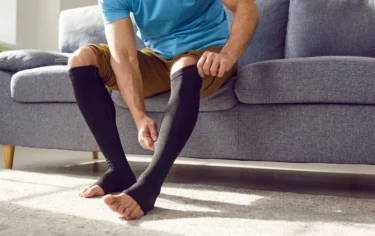
Compression stockings are designed in such a way so that they help to squeeze your legs and improve blood circulation. As the blood circulation improves, it encourages the flow of blood to your heart. In addition, compression stockings relieve the pain, swelling and discomfort associated with varicose veins. Pregnant women who also have varicose veins can use compression stockings for the duration of their pregnancy. But, pregnant women should consult their doctor before using compression stockings.
Compression stockings are available in different colours, sizes, foot styles, pressures and lengths that can be bought from chemists or directly available from manufacturers6.
Wearing tight-fitting clothes can restrict blood flow. A person may find that their circulation is improved by wearing loose-fitting clothes that do not restrict the blood supply to the lower body. Wearing flat shoes instead of high heels may also help with varicose veins in the legs.
Dr. M.G. Kartheeka, MBBS, MD(Pediatrics)

If you have a sedentary lifestyle and if your work involves sitting or standing for a long time, you can take small breaks every 30 minutes to stand up and walk around. Walking will allow the muscles of your legs to move the blood back to your heart. You can do this at your home or workplace to improve the blood circulation in your legs5.
Natural remedies are also effective in relieving varicose veins. Many natural remedies that might help to improve varicose veins are:
Prolonged sitting and standing usually makes the varicose veins worse and this condition doesn’t usually get cured on its own and usually requires compression stockings, medical and at times surgical management, if severe and painful.
Dr. Ashish Bajaj, M.B.B.S., M.D. in Clinical Pharmacology and Toxicology
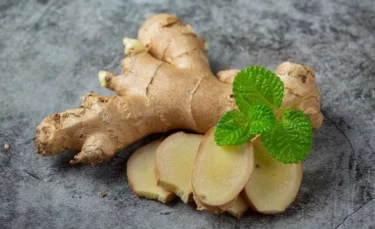
Ginger possesses many health benefits like improving the flow of body fluids and stimulating blood circulation in the body. It also helps in lowering high blood pressure too7. You can use ginger to get relief from varicose veins8. You can add fresh ginger to your diet to get rid of varicose veins. You can also make fresh ginger tea to relieve varicose veins.
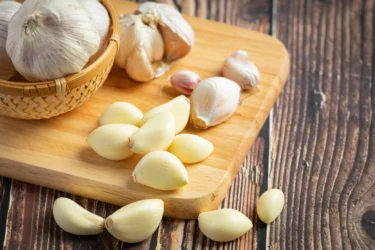
You can take garlic to get relief from varicose veins. Garlic can help to improve blood circulation and reduce blood pressure, improving the swelling and blood circulation associated with a varicosed vein8. You can involve fresh garlic in your diet by adding it to various dishes.
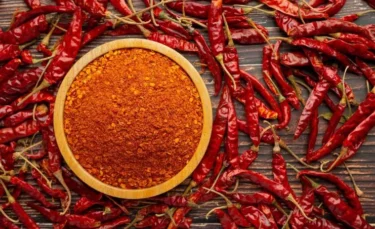
Cayenne pepper prevents the formation of blood clots and helps in breaking down existing blood clots. This improves blood circulation and helps to get relief from varicose veins8. You can put cayenne pepper in your dishes.
Also Read: Natural Home Remedies for Blood Clots
Varicose veins are not dangerous and do not cause any severe health problems. However, if your varicose veins make you uncomfortable about your appearance, you can meet your healthcare provider or doctor for an examination. Also, if you notice these symptoms along with varicose veins, contact your healthcare provider immediately.
Also Read: Effective Home Remedies for Swollen Legs
A varicosed vein appears swollen or bulging beneath the skin surface and is blue or purple in colour. If you are suffering from varicose veins, you are not alone. There are many people suffering from varicose veins who do not experience any complications. In most cases, they do not cause any pain. However, some people might find the presence of varicose veins uncomfortable and concerning. If your varicose veins are causing you any discomfort, you can reach out to your healthcare provider and get a diagnosis and treatment. You can even follow simple steps at home like exercising, walking, elevating the legs and wearing compression stockings.
However, if your varicose veins do not improve with home remedies and you feel other symptoms like bleeding, discolouration and pain, you should immediately contact your healthcare provider.
Also Read: Best Home Remedies for Burning Feet
There are many home remedies to relieve a varicose vein. You can start by physical exercise, wearing compression stockings and doing leg elevation whenever you have time. Weight loss can also help in relieving varicose veins symptoms. There are some common ingredients like ginger, garlic and cayenne pepper that you can involve in your diet in relieving varicose veins3,5,6,8.
Varicose vein does not cause complications most of the time. However, in rare cases, people may develop complications like inflammation of veins and the formation of blood clots3. If you experience these complications, you should contact your healthcare provider immediately
You can start by maintaining healthy body weight and regular exercise. You should avoid wearing tight clothing, raising your feet while sitting and sitting cross-legged. These steps might help you to prevent varicose veins3.
The herbal remedies for varicose veins include ginger, garlic and cayenne pepper. You can involve these remedies in your diet to relieve from varicose veins8.
Ginger offers several health benefits in relieving varicose veins. Ginger improves blood circulation, enhances the flow of body fluids and reduces high blood pressure7,8.
If your varicose vein is not causing you pain or discomfort, you might not require medical intervention1. However, some people may feel uncomfortable due to the appearance of varicose veins. You can contact your healthcare provider and get proper treatment in such conditions. Also, if the varicose vein is accompanied by bleeding, swelling, pain and discolouration, you should immediately contact your healthcare provider4.
Disclaimer: The information provided here is for educational/awareness purposes only and is not intended to be a substitute for medical treatment by a healthcare professional and should not be relied upon to diagnose or treat any medical condition. The reader should consult a registered medical practitioner to determine the appropriateness of the information and before consuming any medication. PharmEasy does not provide any guarantee or warranty (express or implied) regarding the accuracy, adequacy, completeness, legality, reliability or usefulness of the information; and disclaims any liability arising thereof.
Links and product recommendations in the information provided here are advertisements of third-party products available on the website. PharmEasy does not make any representation on the accuracy or suitability of such products/services. Advertisements do not influence the editorial decisions or content. The information in this blog is subject to change without notice. The authors and administrators reserve the right to modify, add, or remove content without notification. It is your responsibility to review this disclaimer regularly for any changes.
Behind every school-going child with an itchy head is a very worried parent, dreading that the child might have lice. Head lice are prevalent in school-going children. It can affect anyone. Head lice are small insects that crawl into the hair and make it their home. They then suck up blood from the head and lay eggs known as nits. These stick to hair shafts so tightly that it becomes tough to pull them out. When there is an infestation of lice in the head, it is known as pediculosis. There are many ways that we can get rid of these little insects1. Let’s explore more about lice and how you can manage them at home.
You can get infested by lice, also known as Pediculus humanus capitis, in the hair of your head when you come in close head-to-head contact with anyone who has head lice. You can even get it by sharing objects such as combs, hats, caps and hairbrushes with a person infested with head lice. You can see them as tiny nits attached to your hair. They might look like dandruff, but unlike dandruff, they cannot be shaken up or brushed off1.
Lice are more common in females than males and more frequently seen in Caucasians than African-Americans1. Some of the symptoms that might help you to recognise head lice infestation are:
Head lice are a common problem that any of us can face. Unfortunately, most of these remedies do not have enough scientific evidence to back them. Nevertheless, they are being used by people. Here are a few home remedies that you may find beneficial for managing head lice infestation.
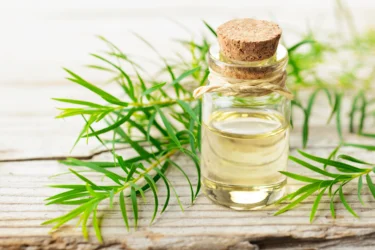
Tea tree oil possesses various beneficial properties, including the activity against various microbes. It can effectively destroy bacteria, viruses and fungi. It also has the property of eliminating insects. Tests were done in the laboratory to see if tea tree oil was effective against head lice. It was found that tea tree oil was indeed effective and resulted in the destruction of lice and their eggs2. You can make use of tea tree oil by taking a few drops of it and applying it to your scalp.
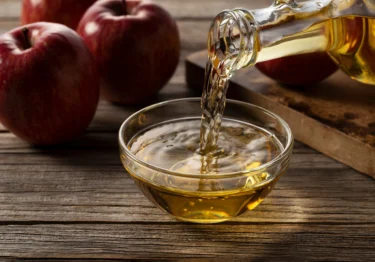
There is very little scientific evidence supporting the use of vinegar as a remedy for head lice. Though it is commonly recommended by people and has been used for a long time for this purpose, it was found to be less effective in destroying lice and stopping their eggs from hatching when compared to other home remedies3. Nevertheless, you can try this remedy, as some people found it to be effective. You can use a few drops of vinegar to apply to your scalp and leave it in for a few minutes. After that, make sure that you wash your hair thoroughly.
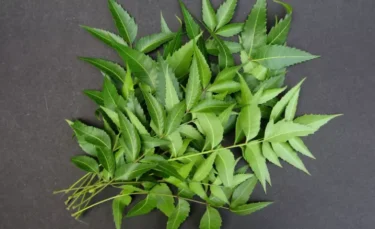
It is claimed that neem is effective in killing head lice. Neem is a part of many shampoos and oils that claim to be effective against head lice. Neem is effective against many insects, but the exact way in which it acts on lice is still not known4. You can use it as a remedy for lice by simply making a juice of neem leaves and applying it onto your head, leaving it for 10-15 minutes and washing it. You can also use neem leaves in the form of a thick paste or boil them in oil and apply to your scalp.
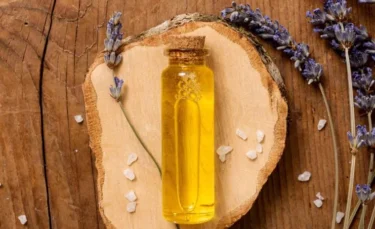
Essential oils are found to be effective in the elimination of head lice. A clinical trial5 showed that lavender oil, when mixed with tea tree oil, was effective in killing head lice. The exact mechanism of action is not known, but essential oils, especially lavender oil and tea tree oil mixture, were found to have more than 97% efficiency in the termination of head lice. You can make use of this by simply mixing the two oils and applying them to your scalp. It can be kept overnight or washed away after a few hours.
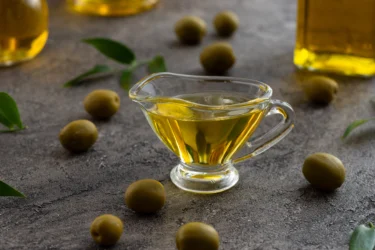
Various unconventional management options are used for head lice infestation, and oil-based remedies are one among them. The given explanation for the use of olive oil as a remedy is that it prevents movement (immobilisation) and suffocates the lice in the head. However, there is no scientific evidence to back this information, yet it is being used6. You can also use this remedy. It is a straightforward home remedy in which you just have to apply olive oil on your head and leave it overnight.
Also Read: How to Clear a Stuffy Nose with Home Remedies
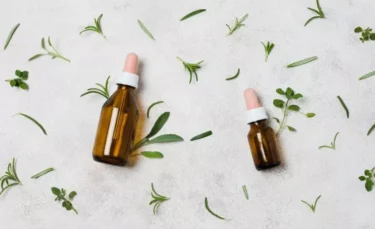
In studies7, it was found that eucalyptus oil was effective in eliminating head lice and their eggs. It was also found to be safe for use and caused only mild itching in a few people. In the same study7, eucalyptus oil was compared to another product and was found to be more effective in killing head lice. Therefore, it might be used as a remedy for head lice infestation. You can take a few drops of eucalyptus oil and apply them to your scalp. You can also mix it with other oils and use it.
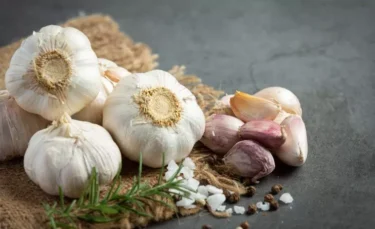
In Ayurveda, garlic is used in the management of head lice8. You can utilise this remedy as well. You can take a few cloves of garlic and make them into a paste. You have to add a little bit of lemon juice to this paste. Mix it well and apply this mixture to the roots of your hair. Leave it for one to two hours, and then rinse it properly with water. To reap the benefits of this remedy, you have to use it diligently.
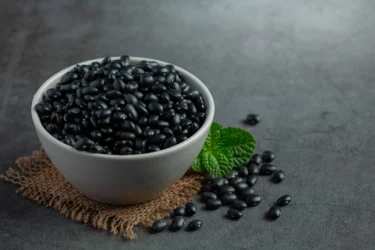
Masha is also a remedy that is used in Ayurveda. It is also known as Jangli Urad in Punjabi and Mashvan or Mashoni in Hindi. To use Masha as a remedy for head lice, you have to cook these seeds in a little bit of sesame oil. Cook these seeds on low flame for a few minutes. Apply this oil to your head regularly for some time to see its beneficial effects for managing head lice.
Onion oil, which has the antibacterial and antifungal properties of onion, is helpful in removing lice eggs from the hair. Besides, it nourishes the hair and also aids in growth, so using it is even better.
Dr. M.G. Kartheeka, MBBS, MD (Pediatrics)
Also Read: 7 Powerful Home Remedies for Acne!
If you cannot get rid of the lice even after using home remedies, you should visit a doctor who might prescribe medicated shampoos or oils. However, if the problem persists even after using prescribed oils or shampoos, you should revisit your doctor and inform them about the severity1. You should seek immediate medical advice if you see any signs of infection, such as:
Head lice do not die on their own if left untreated. If you let it stay untreated, it might complicate and lead to more severe itching and discomfort as the lice multiply rapidly without treatment.
Dr Ashish Bajaj, M.B.B.S, M.D. in Clinical Pharmacology and Toxicology
Itching in your head may be due to a lice infestation. Head lice can infest anybody, and it is more common in school-going children, as they are more likely to share combs, hats, etc., and come in head-to-head contact with others. There are a few home remedies, such as lavender oil, eucalyptus oil and others that you can use to get rid of this infestation. You should seek medical advice if head lice persist even after using home remedies. Your doctor might prescribe medicated shampoos or oils for use.
Also Read: Natural Home Remedies for Leg Pain
Yes, anyone can get head lice if they come in head-to-head contact with a head lice-infested individual or share objects such as hairbrushes and hats with them.
No, lice are tiny crawling insects that can infest your head hair. They can stay in your head, suck blood and lay eggs in your hair. The insect’s name is lice (also known as Pediculus humanus capitis).2 It is not a viral infection.
Yes, men can get infested by head lice just like anybody else. However, it is more common in women than in men.
There is a possibility that the specks that look like dandruff but do not go away on brushing or shaking are known as nits. Nits are the eggs of head lice. To be sure, kindly consult your doctor.
Yes, neem is used as a home remedy for head lice. The exact way in which it acts is not known. It is also an ingredient of various shampoos and oils that claim to be effective against head lice.
1. Centers for Disease Control and Prevention. About head lice [Internet]. Atlanta: CDC; 2024 Jun 4 [cited 2025 May 22]. Available from: https://www.cdc.gov/lice/about/head-lice.html
2. Di Campli E, Di Bartolomeo S, Pizzi PD, Di Giulio M, Grande R, Nostro A, et al. Activity of tea tree oil and nerolidol alone or in combination against Pediculus capitis (head lice) and its eggs. Parasitol Res [Internet]. 2012 July 31 [cited 2022 May 24];111(5):1985-92. Available from: https://www.ncbi.nlm.nih.gov/pmc/articles/PMC3480584/pdf/436_2012_Article_3045.pdf
3. Johnston CS, Gaas CA. Vinegar: Medicinal Uses and Antiglycemic Effect. MedGenMed [Internet]. 2006 May 30 [cited 2022 May 24];8(2):61. Available from: https://www.ncbi.nlm.nih.gov/pmc/articles/PMC1785201/
4. Brown CM, Burgess IF. Can neem oil help eliminate lice? Randomised controlled trial with and without louse combing. Adv Pediatr Res [Internet]. 2017 June 30 [cited 2022 May 24];4:9. Available from: https://www.researchgate.net/publication/318347702_Can_neem_oil_help_eliminate_lice_Randomised_controlled_trial_with_and_without_louse_combing
5. Barker SC, Altman PM. A randomised, assessor blind, parallel group comparative efficacy trial of three products for the treatment of head lice in children–melaleuca oil and lavender oil, pyrethrins and piperonyl butoxide, and a “suffocation” product. BMC Dermatol. 2010 Aug 20;10:6. doi: 10.1186/1471-5945-10-6. PMID: 20727129; PMCID: PMC2933647. Available from: https://pubmed.ncbi.nlm.nih.gov/20727129/
6. Mazurek CM, Lee NP. How to manage head lice. West J Med [Internet]. 2000 May 1 [cited 2022 May 24];172(5):344-5. Available from: https://www.ncbi.nlm.nih.gov/pmc/articles/PMC1070891/pdf/wjm17200342.pdf
7. Greive KA, Barnes TM. The efficacy of Australian essential oils for the treatment of head lice infestation in children: A randomised controlled trial. Australas J Dermatol [Internet]. 2018 Dec 30 [cited 2022 May 24];59(2):e99-105. Available from: https://www.ncbi.nlm.nih.gov/pmc/articles/PMC6001441/pdf/AJD-59-e99.pdf
8. Samiasih A, Dianingsih A, Ferdisa RJ, Wati F, Hartiti T, Ernawati E, Yanto A. The effectiveness of garlic, black turmeric, and red betel vine solutions to maintain scalp hygiene (pediculicide efficacy test toward head lice). South East Asia Nursing Research. 2020 Dec 30;2(4):132–138. doi: 10.26714/seanr.2.4.2020.1-7. Available from: https://www.researchgate.net/publication/348090555_The_effectiveness_of_garlic_black_turmeric_and_red_betel_vine_solutions_to_maintain_scalp_hygiene_pediculicide_efficacy_test_toward_head_lice
Disclaimer: The information provided here is for educational/awareness purposes only and is not intended to be a substitute for medical treatment by a healthcare professional and should not be relied upon to diagnose or treat any medical condition. The reader should consult a registered medical practitioner to determine the appropriateness of the information and before consuming any medication. PharmEasy does not provide any guarantee or warranty (express or implied) regarding the accuracy, adequacy, completeness, legality, reliability or usefulness of the information; and disclaims any liability arising thereof.
Pinworms are parasitic worms that survive in the rectal and intestines of the infected person. Pinworms can infect people of all ages, especially children. Pinworms, also known as threadworms, are white/light grey tiny worms that cause the common infection known as enterobiasis, found more commonly in children than adults. Symptomatic pinworm infection is an issue of concern, though the treatment for pinworms is simple1,2.
Family members and people taking care of infected children are at a higher risk of infection. The most common sources of pinworm infection are preschools, schools and day-care centres1. If anyone in your family is infected with pinworms, you should get help from a doctor to get a diagnosis and treatment. You can also try some home remedies; read along to find some home remedies to help take care of pinworms at home.
The eggs of pinworms, when swallowed, can cause infection3. The infection spreads in the following manner:
If you have a pinworm infection, you can notice the following symptoms:
The following home remedies can be used for dealing with pinworm infection at home:
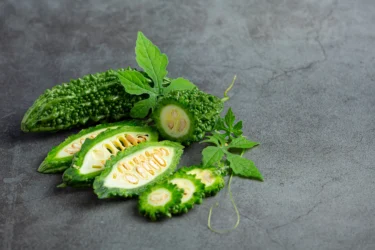
Consuming bitter melons (bitter gourds) every day for about one and a half weeks can help eliminate pinworm4. You can take two bitter gourds and remove the seeds. Then, extract the juice and drink small portions of this juice three to four times a day.

Palasha seeds also help in getting relief from pinworm infestation5. You can consume palasha seeds powder along with castor oil before going to bed.

Kalmegh is a herb that has several benefits, including the ability to help provide relief from intestinal worms and pinworms in particular6. You may make a paste of kalmegh and consume this paste early morning on an empty stomach for a week.

Garlic contains sulphur, which helps expel worms7. Take garlic, cloves and carrot, and extract the juice from all three components together. You can consume this mixture frequently throughout the day.
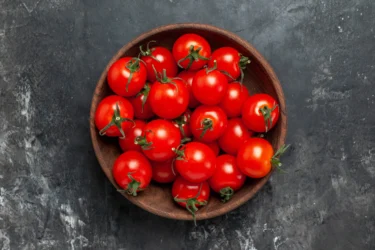
The cherry tomatoes are beneficial against pinworm infection as they can help to control the infection8. To obtain benefits, take one cup of cherry tomatoes and mix them with ground black pepper and a small amount of salt. Consume on an empty stomach for a few days.

Parijat flowers help to control and kill pinworms. They are very beneficial as they also wipe out worm eggs from the stomach9. The flowers can be consumed in the form of curry during the winter.
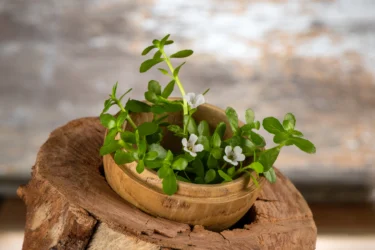
Brahmi has the ability to kill pinworms. You can take Brahmi in the form of the extract on an empty stomach in the morning for a few weeks. It is also being used by Ayurvedic practitioners to treat pinworm infections10.
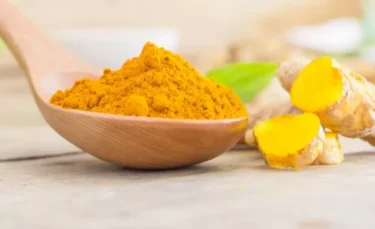
Pinworms can be managed with dry turmeric powder11. You can also make turmeric tea by adding a small amount of turmeric to one cup of hot water and boiling it for five to 10 minutes. Drink every day to get the benefits.
Other possible ways to prevent a pinworm infection are by ensuring cleanliness in the following ways:
Also Read: Best Home Remedies for Burning Feet
You must keep the following points in mind:
Also Read: Best Home Remedies for Burning Feet
Parasitic worms called pinworms or threadworms survive in the rectal regions of the infected person. Though pinworms can infect people of all ages, children are more commonly affected as they are in close social contact with other kids who may be infected. Also, they have habits like nail-biting and may not wash their hands properly before meals. You can avoid pinworm infection by maintaining good hygiene. Several home remedies like garlic, bitter melons, turmeric, kalmegh, etc., may help you deal with pinworm infection. Rarely, there may be some serious complications due to pinworms. Therefore, you must consult a doctor if the problem persists even after trying the home remedies.
Also Read: Simple Home Remedies for Swollen Gums
Yes, pinworm infection can spread from linen and undergarments used by an infected person, inhaling eggs that travel through the air and through pets as they carry eggs on their fur.
Though rare, some serious complications of pinworm infestation are urinary tract infections, gastrointestinal and abdominal problems, appendicitis (a condition in which the appendix becomes inflamed and painful), inflammation of the vagina and the lining of the uterus, and bacterial infections.
Yes, people having pinworm infections may have trouble sleeping, and this may further cause weight loss and fatigue.
Yes, there are a few effective home remedies to deal with pinworm infections, such as Brahmi, garlic, cherry tomatoes, turmeric, parijat, etc. Though complications related to pinworm infestation are rare, you must consult a doctor if the problem persists even after following the home remedies.
Disclaimer: The information provided here is for educational/awareness purposes only and is not intended to be a substitute for medical treatment by a healthcare professional and should not be relied upon to diagnose or treat any medical condition. The reader should consult a registered medical practitioner to determine the appropriateness of the information and before consuming any medication. PharmEasy does not provide any guarantee or warranty (express or implied) regarding the accuracy, adequacy, completeness, legality, reliability or usefulness of the information; and disclaims any liability arising thereof.
Are you suffering from heel pain and don’t know what to do? Continue to read to know about the home remedies to manage your heel pain! Heel pain is a common problem that affects the foot and ankle. Anything that causes lots of pressure on the heel or foot can cause heel pain. It affects people of all age groups and gender. Depending on the severity, it can also lead to immobility and hamper participation in daily activities. The heel has got a padded cushion of fatty tissue that helps to hold its shape despite any amount of pressure of body weight or movement of the body. The pain, tenderness and soreness can be felt anywhere in the heel, but it typically affects the area behind the heel, beneath the heel or within the heel bone itself1,2.
Did you know?
There are a lot of causes of heel pain. Scroll down to know more.
The most typical cause of heel pain is the bony spur. Effective treatments include local injection of corticosteroids, alone or in combination with exercise and physiotherapy. Extracorporeal shock wave therapy has shown higher effectiveness in relieving plantar heel pain and improving function compared with other treatments in the short term, medium term and long term.
Dr. M.G. Kartheeka, MBBS MD(Pediatrics)
There are various symptoms of heel pain:
Try the following home remedies to get rid of heel pain at home:
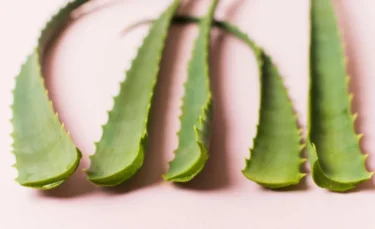
The bioactive components of aloe vera have anti-inflammatory properties, which help in decreasing the inflammation caused due to plantar fasciitis2,5. Massage aloe vera gel topically on the soles of the feet to help with managing the inflammation. This in turn, can help to reduce heel pain.
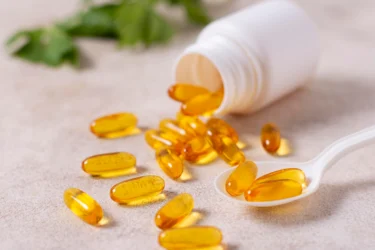
Vitamin D deficiency is suspected in patients with plantar fasciitis. Supplementation with adequate doses of Vitamin D will give symptomatic relief6. Milk, mushrooms, and egg yolk are rich sources of Vitamin D. You can include them in your diet to deal with Vitamin D deficiency.

It is useful in the management of pain7. You can mix one to two drops of lavender oil in coconut or olive oil and massage the mixture on the bottom of your feet. You may also add a few drops of lavender oil to warm water and soak your feet in it to get relief from the pain.
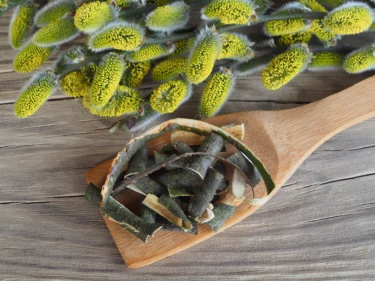
It is used to deal with the pain caused by plantar fasciitis8. Add willow bark to water and boil it for five to 10 minutes. Now, keep it for 20 to 30 minutes and strain this with the help of a mesh strainer. Two cups of tea will help in easing the pain.

Ginger is helpful in reducing pain caused by plantar fasciitis8. Soak the foot in hot water infused with freshly grounded ginger for 10 minutes. Ginger is an easily available ingredient and can be used to deal with heel pain efficiently.

Also Read: Effective Home Remedies for Body Pain
Consult the doctor immediately if you feel the following:
Also Read: Effective Home Remedies for Swollen Legs
Heel pain is a very common problem nowadays. The patients usually complain of gradual onset of pain, which is worse in the morning. Home remedies such as lavender essential oil, ginger, aloe vera etc., are useful in dealing with heel pain. Supportive measures such as rest, stretching and orthosis are also beneficial and recommended. If you continue to have symptoms (especially for more than six months), a night splint is useful. In the majority of the cases, these remedies are found to be effective in reducing pain.
Also Read: Best Home Remedies for Cracked Heel
Home remedies such as lavender essential oil, aloe vera gel, ginger, willow bark etc., are found to be of great use in relieving the heel pain5,7,8.
Heel pain is common in middle-aged people, people who stand for long durations, overweight people, pregnant women and physically active people2.
See your doctor immediately if you have severe pain, swelling or stiffness near your heel. If you are not able to walk properly and the pain does not go away even after a few weeks of rest and following the home remedies, you must consult a doctor1.
There is no evidence or documented study that supports the use of Epsom salt for dealing with heel pain.
Disclaimer: The information provided here is for educational/awareness purposes only and is not intended to be a substitute for medical treatment by a healthcare professional and should not be relied upon to diagnose or treat any medical condition. The reader should consult a registered medical practitioner to determine the appropriateness of the information and before consuming any medication. PharmEasy does not provide any guarantee or warranty (express or implied) regarding the accuracy, adequacy, completeness, legality, reliability or usefulness of the information; and disclaims any liability arising thereof.
Links and product recommendations in the information provided here are advertisements of third-party products available on the website. PharmEasy does not make any representation on the accuracy or suitability of such products/services. Advertisements do not influence the editorial decisions or content. The information in this blog is subject to change without notice. The authors and administrators reserve the right to modify, add, or remove content without notification. It is your responsibility to review this disclaimer regularly for any changes.
Do you snore and are embarrassed about it? Do you know someone who snores, and it gets difficult for their loved ones to sleep around them? Wondering how to stop snoring? Read along to know simple home remedies that will help you get relief.
Snoring is an unpleasant sound that occurs when air flows through a partially obstructed airway. Snoring occurs when the tissues at the top of your airway rub against each other and vibrate. Snoring is usually a common problem usually experienced by middle-aged adults2. People who snore often experience an unrefreshing sleep, frequent awakening from sleep, choking sensations, daytime weakness or personality changes; they can develop potentially life-threatening conditions. It can sometimes lead to a serious health condition called obstructive sleep apnoea. Obstructive sleep apnoea is characterised by periodic episodes of full or partial upper airway obstruction while sleeping. Simple lifestyle measures like losing weight and quitting smoking and alcohol can be the answers for how to stop snoring naturally1,4.
There can be various causes that could lead to snoring. Some factors that can affect your airway and result in snoring include:
Chronic nasal congestion due to rhinitis (inflammation affecting the nose) or sinusitis (inflammation of the sinuses) is a common cause of snoring. You may visit your doctor to undergo a thorough physical examination along with tests like X-ray, MRI or CT scan to rule out other causes.
Dr Ashish Bajaj, M.B.B.S, M.D. in Clinical Pharmacology and Toxicology
Some of the symptoms associated with snoring are:
There could also be other symptoms like:
However, a few people do not realise that they have been snoring during sleep.
Snoring is a common manifestation of obstructive sleep apnea.Obstructive sleep apnea (OSA) is characterized by episodes of a complete (apnea) or partial collapse (hypopnea) of the upper airway with an associated decrease in oxygen saturation or arousal from sleep1. This disturbance results in fragmented, nonrestorative sleep. Seek a ENT specialists help.
Dr. M.G. Kartheeka, MBBS, MD(Pediatrics)
The following home remedies can help to manage snoring:

This oil contains anti-inflammatory properties. It might help clear your nose and respiratory tract and help you minimise snoring and mild sleep apnoea related symptoms7. Few drops of peppermint oil can be taken with water and gargled before sleeping. It will help if you remember not to swallow this solution. This can be done until the desired result is obtained.
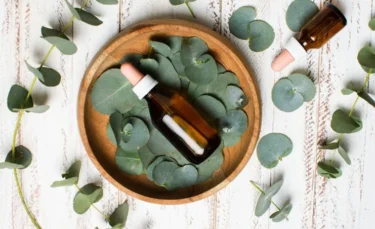
This essential oil has demonstrated the ability to break down mucus accumulated in the respiratory tract and sinuses. Thus, it is helpful to clear the sinuses and airways, aiding in much easier breathing7. Few drops of eucalyptus oil can be taken in a bowl of hot water, and the stream can be inhaled. Your head can be covered with a towel to make this remedy more effective.

Palash has properties to relieve nasal congestion significantly. Nasal congestion may be a reason for snoring; thus, it may benefit and relieve you from snoring. Decoction of the bark can be consumed with some salt for benefits and relief3,8.

It helps adults and children to get relief from cold-related congestion that may be the reason behind snoring. Coarse powder of musta boiled and reduced in milk when consumed regularly will help gain benefits5,8.
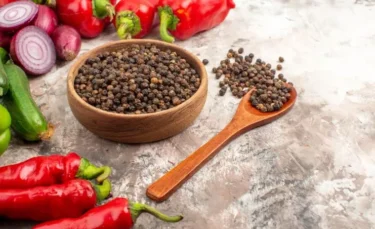
Black pepper helps open the nasal blockage, which is the prime reason behind snoring. Mix an equal quantity of black pepper, cardamom, cumin seeds, and cinnamon and grind into fine powder. Sniffing this powder a few times a day may help get relief from snoring3,8.
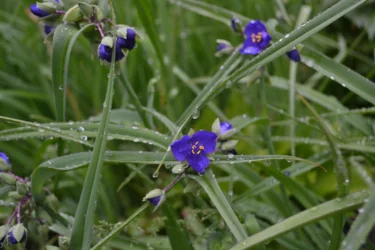
The whole spider wort plant crushed and boiled in water can be inhaled in the form of steam. It enables you to get relief from nasal congestion, cold and cough, a few of the significant causes of snoring3,8.
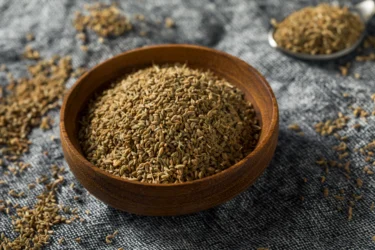
Ajwain has benefits in relieving nasal block when inhaled, especially as steam. The nasal blockage has been identified as a significant cause of snoring; thus, taking steam using ajvain water may help you get relief from snoring due to nasal congestion. Take some ajvain seeds and crush them. Keep these crushed seeds tied in a cloth and sniff them. You can also add ajvain into boiling water and inhale the steam before going to bed to get benefits and relief from snoring3,8.

Some bedtime remedies that can help to manage snoring include:
Some lifestyle changes that can prevent snoring include:
Also Read: Simple Home Remedies for Sneezing
Usually, snoring is associated with a sleep disorder known as obstructive sleep apnoea. Not all people who snore have this condition. Moreover, many medical problems can cause snoring. It may even be a sign of underlying issues; thus, you must visit your doctor and discuss your concerns. You must pay immediate attention and consult your health care provider if:
Also Read: Home Remedies To Cure Bad Breath Naturally
Snoring is an uncomfortable, disturbing, and irritating condition that may impact one’s personal life and health. Snoring occurs for several reasons like obesity, allergies, cold, anatomy of your mouth and sinuses, structural changes in your mouth etc. Snoring is observed in people of all ages, even in children, and it tends to worsen with age. You can follow some home remedies like peppermint oil and eucalyptus oil, ajvain, and black pepper, using anti-snore mouth appliances and nasal strips to help you get rid of snoring. There are several lifestyle changes like losing weight, quitting smoking and limiting alcohol consumption that might be helpful in the management of snoring. Still, you must consult a physician if snoring persists or worsens.
Also Read: Natural Home Remedies For Chest Congestion
Yes, snoring gets worse with age. Due to ageing, there is a weakening of the muscle around the tongue and throat, resulting in increased snoring10.
For diagnosis of snoring and related issues, the doctor observes the heart, blood pressure, mouth, throat and nose. Then the doctors might assess your sleeping patterns by using a polysomnogram, which studies sleep patterns. This study will help them understand your brain wave activity, heart rate and oxygen levels, movements while sleeping like changing positions and breathing patterns, cessation of breathing or gasping for air. This helps the doctor diagnose the issues that cause snoring6.
Some surgical options that can be considered to manage snoring include radiofrequency ablation (using radiofrequency energy to reduce excess tissues present in the tongue and soft palate), laser-assisted uvulopalatoplasty (LAUP- This surgery is done to shrink tissue in the soft palate and enhance airflow), tonsillectomy and adenoidectomy (surgical reduction of excess tissue from behind the throat-tonsillectomy or the nose-adenoidectomy)6.
Some non-surgical treatment options for snoring include medications that may relieve nasal congestion and aid in easy breathing, nasal strips that are flexible bands that can be stuck outside your nose, which keeps nasal passages open, and lifestyle changes (like avoiding alcohol, maintaining an average weight and changing your sleep position) and oral appliances (also called mouth guard, this can keep your jaw in the correct place while you sleep such that there is proper flow of air)6.
Snoring occurs when the airway narrows or becomes partially blocked during sleep, causing the tissues in the throat to vibrate. Common causes include nasal congestion, relaxed throat muscles, excess weight, alcohol consumption and sleep position.
Snoring can disrupt sleep patterns, leading to daytime fatigue and decreased cognitive function. In some cases, it can be a symptom of sleep apnea, a potentially serious sleep disorder associated with breathing pauses during sleep. It is essential to address chronic snoring to improve sleep quality and overall health.
Yes, sleeping on your back can worsen snoring as it may cause the tongue to relax back into the throat, obstructing the airway. Sleeping on your side or using pillows to elevate your head can help improve airflow and reduce snoring.
Yes, for individuals who are overweight or obese, losing weight can often reduce snoring. Excess weight can lead to extra tissues in the throat, contributing to airway obstruction during sleep.
Disclaimer: The information provided here is for educational/awareness purposes only and is not intended to be a substitute for medical treatment by a healthcare professional and should not be relied upon to diagnose or treat any medical condition. The reader should consult a registered medical practitioner to determine the appropriateness of the information and before consuming any medication. PharmEasy does not provide any guarantee or warranty (express or implied) regarding the accuracy, adequacy, completeness, legality, reliability or usefulness of the information; and disclaims any liability arising thereof.
Links and product recommendations in the information provided here are advertisements of third-party products available on the website. PharmEasy does not make any representation on the accuracy or suitability of such products/services. Advertisements do not influence the editorial decisions or content. The information in this blog is subject to change without notice. The authors and administrators reserve the right to modify, add, or remove content without notification. It is your responsibility to review this disclaimer regularly for any changes.
Is your neck darker than the rest of your body? Do you think it will get corrected by scrubbing, but it doesn’t? Well, a dark neck might be due to a range of different reasons. It can be due to some underlying medical conditions, such as Acanthosis nigricans1. If you have this condition, you may notice darkening of the folds in your neck. The darkening can also be in the folds of your armpits, groin or under your breast.
What might just look like a darkening of the neck can turn out to be something else when you take a closer look. So, read on and make sure you get to the root of your neck darkening and manage it with the home remedies that we have presented.
There are many reasons that can cause the darkening of your neck, such as:
When our skin is exposed to the sun for too long, it can become darker. This is called sun-tan. This occurs due to the melanin present in our skin, which protects our skin cells from damage by the sun’s ultraviolet rays. Melanin is a pigment responsible for the darkening of the skin. As the neck is an area that is exposed to sunlight, there might be a chance for the darkening of the neck to be caused by sunlight exposure.
This condition may develop:
You might have had this condition since birth, i.e. it might be congenital. The symptoms of Acanthosis nigricans usually develop slowly. It might indicate cancer if the symptoms develop quickly, as darkening of the neck may rarely be a sign of cancer, but it is possible.
This is a rare condition that affects one person in every one million. One of the characteristic features of this disease is the pigmentation (or darkening) of the neck in a ‘lacy’ pattern along with two other features, which are: white patches in the mouth (oral leukoplakia) and abnormally shaped finger and toenails (nail dystrophy)2.
It is a condition in which there is the formation of a crust on the neck due to the collection of oil, dust, bacteria and dead cells. This condition generally goes unnoticed or undiagnosed. This also causes the darkening of the neck3.
The exact cause for this condition is unknown, but occupational allergy to cobalt seems to have some role in it. It is an uncommon condition that can be recognised by the occurrence of dark-coloured patches on the neck and other parts of the body4.
The presence of dark, velvety patches on the neck, underarms and elbows indicates acanthosis nigricans. Although it may seem like a cosmetic issue, it is a significant sign of insulin resistance and requires an endocrinologist’s assessment. Lifestyle changes and weight management can not only improve these symptoms but may also lower the risk of metabolic conditions like diabetes.
Dr. Arpit Verma, MBBS, MD (Pharmacology)
Neck darkening is a symptom that can occur due to many causes, as stated above. Some of the features that might help you recognise it are:
These symptoms may appear slowly. If they appear suddenly, it might be an indicator of cancer. You should consult a doctor at the earliest.
Rarely, you might also have the following symptoms:
Treating the underlying cause of the dark neck might lead to the lightening of the patches. However, there are a few home remedies that you can try to lighten the darkened patches of skin on your neck.
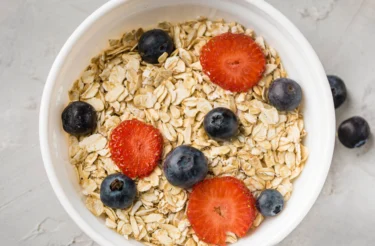
Oats have antioxidant activity. It also helps cleanse, moisturise, and soothe the skin5. These activities of oats might be beneficial for the dark neck skin. You can use oats to lighten the dark neck by taking a few spoons of oats and grinding them. Ground oats can also be used directly. You need to mix this with a little tomato puree until it reaches a paste-like consistency. Apply this to the darkened areas and let it sit for a while. Then wash it off using water. You can use this pack regularly to get the results.
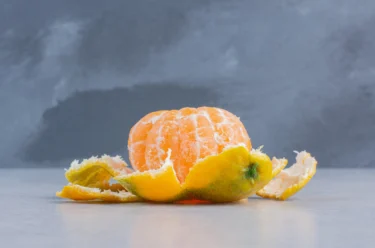
Studies6 have shown that orange peel has skin-whitening properties. This might be due to its antioxidant properties or its activity against a compound called tyrosine, which plays a role in skin darkening. For utilising this remedy, you can use orange peel powder that is readily available, or you can sun-dry the orange peels and grind them to obtain a powder. This powder is to be mixed with either whole milk or orange juice to form a paste. You can apply this paste to the dark areas of your neck and leave it on for 10-15 minutes. After that, you can wash it off.
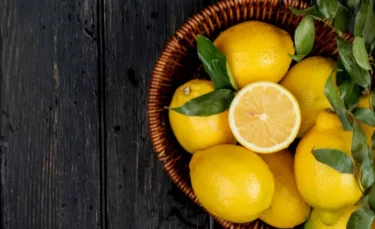
Lemon has antioxidant activity, which may help with skin lightening. In a study7, it was observed that it might also have activity against tyrosine. Therefore, it might be used as a skin-lightening agent. You can use the lemon juice directly for application if you have normal skin. But if your skin is sensitive, mix equal parts of rose water with lemon juice and use it for application on your neck. This should be kept for 15-20 minutes, after which it can be washed off using cold water. Applying this daily might be beneficial for your dark neck.
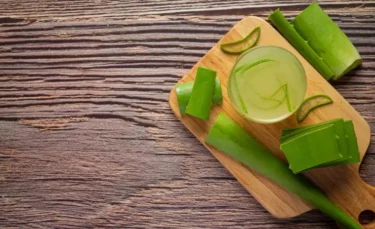
Aloe vera has various benefits for the skin8. It also has the potential to lighten skin9 and inhibits the action of many enzymes responsible for melanin production (a pigment that causes skin darkening). Thus, it can be used to lighten a dark neck.
You can make use of a fresh aloe vera leaf for this remedy. A fresh leaf of aloe vera can be cut open, and the gel can be applied directly onto the dark regions of the neck. While applying the gel, gently massage the neck. Leave the gel for 10-15 minutes. Use cold water to wash off the gel after that. This has to be followed daily for the effects to be visible.
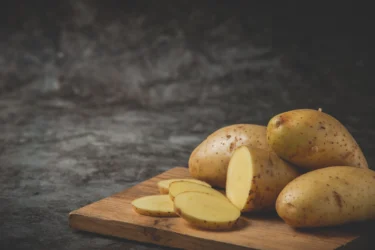
Potatoes exhibit natural skin-lightening activity10. In skin and face packs, raw potatoes can work well. They also possess the property of cleansing the skin. Potatoes can also help soothe sunburn on the skin. Therefore, they may be used for managing dark necks. You have to extract the juice of a potato for this remedy. The juice of a potato should be mixed with a little bit of lemon juice and applied to the neck where you see darkened areas. It should be left for 10-15 minutes. Wash it off with cold water after that. This remedy has to be followed daily to gain the benefits.

Coffee beans have a natural skin-lightening effect11. They also act as an antioxidant and decrease the production of melanin by preventing the activation of tyrosine. This effect of coffee beans can be utilised for managing dark necks. You can use coffee beans by making a coarse powder of them and mixing it with a little water to form a paste. This paste can be applied to the dark areas of the neck and left for 10-15 minutes. After this, wash it, dry it, and moisturise. Apply this pack once a week to see its beneficial effects.
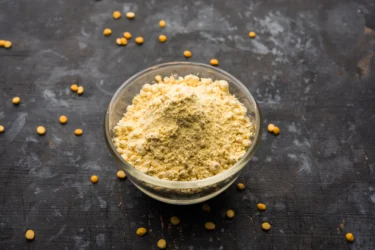
Gram flour is commonly known as besan. It has been used as an ingredient in homemade skincare and hair products for a long time. It helps lighten the skin and also cleanses it. Take a few spoons of gram flour and add a little bit of turmeric to it. You can add either water or curd to it and mix it until it forms a thick paste. Mix it well and ensure there are no lumps. You can apply this paste onto your neck and leave it until it dries. After it dries, wash it off, dry the area properly and moisturise it. Following this remedy, two to three times a week, is necessary to see its beneficial effects.
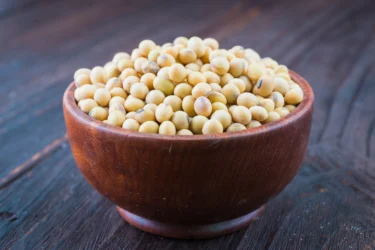
In laboratory studies12, it was found that soy has skin-lightening effects. However, further human studies are required to be absolutely sure of the effects. For this remedy, mix soy powder or flour and make a thick paste by adding water or yoghurt. Apply this paste onto your neck and leave it until it dries. After it dries, wash it off with cold water, dry the area and moisturise your skin using a moisturiser. You can use this home remedy on a daily basis until you see a difference.
Insulin resistance can cause acanthosis nigricans (one of the common causes of a dark neck). A good exercise regimen (cardio and strength training) can help decrease insulin resistance and eventually lighten the dark neck.
Dr. Nikhil Yadav, MBBS MD,CCEBDM
Also Read: Home Remedies to Keep Dark Circles Away!
You should seek immediate medical help if the symptoms of the dark neck appear suddenly. Though it is rare, it might be an indicator of cancer. A doctor will conduct the necessary examinations, such as biopsy and other tests, to make a diagnosis. If you notice any other symptoms along with darkening of the neck, like irregular darkened patches, poor or irregular growth of nails or white patches inside your mouth, please make sure that you visit a doctor and get it checked. They will be able to diagnose your condition better and give you proper medical advice.
Also Read: Natural Home Remedies for Hyperpigmentation
The darkening of the neck may seem like a small thing and may even go unnoticed. Still, sometimes it can be an indicator of an underlying medical condition like hormonal issues, diabetes or very rarely, even cancer. You might notice velvety skin, darkened patches, skin tags, and itching in your neck. It can be an indicator of a few rare conditions like dyskeratosis congenita, Acanthosis nigricans, etc. Treating the condition can help deal with neck darkening. However, you can try using a few home remedies, such as gram flour, aloe vera, and coffee, and see what suits you best. You should never hesitate to consult your doctor to get things checked out and cleared.
Also Read: Best Home Remedies For Smelly Armpits
No. If the darkening of the neck is caused by the condition of Acanthosis nigricans, it is not contagious or dangerous. It does not spread by coming in contact with another person who has it. However, we cannot be too sure about its spread through touch if it is caused by other conditions, as there is not enough scientific evidence. So, it’s better to consult your dermatologist (a doctor specialising in skin and hair).
Yes, the dark neck is treatable. Usually, treating the underlying condition helps to manage neck darkening. A few home remedies, like aloe vera, coffee, oats, etc., might also help.
No, not always. The dark neck can be due to underlying medical conditions like diabetes, or it can have a genetic origin. Sometimes, if the symptoms appear rapidly, it might be an indicator of cancer. However, darkening of the neck as a sign of cancer is a rare occurrence.
No. There is no evidence that neck darkening is caused by high blood pressure. However, other associated medical conditions like thyroid diseases, diabetes, and Addison’s may cause neck darkening.
Yes. Aloe vera might have potential skin-lightening effects. You can apply fresh leaf of aloe vera. Massage it slowly over the area, leave it for some time, and then wash it off to see the effects.
Yes. You can make use of coffee as a home remedy for dark necks. Coffee has potential skin-lightening effects. You can use coarsely ground coffee powder as a pack on your neck.
Disclaimer: The information provided here is for educational/awareness purposes only and is not intended to be a substitute for medical treatment by a healthcare professional and should not be relied upon to diagnose or treat any medical condition. The reader should consult a registered medical practitioner to determine the appropriateness of the information and before consuming any medication. PharmEasy does not provide any guarantee or warranty (express or implied) regarding the accuracy, adequacy, completeness, legality, reliability or usefulness of the information; and disclaims any liability arising thereof.
The liver is the largest organ of the human body. It helps process food and removes toxins from the body. Fatty liver disease is the buildup of excessive fats in the liver cells. Some amount of fat is normal for the liver, but if the fat content is more than 10% of the liver’s weight, you might be suffering from a fatty liver. A fatty liver might not present with any symptoms but can lead to complications like liver damage[1]. However, you can reverse or prevent fatty liver with some lifestyle changes. You can also use some natural home remedies to manage fatty liver.
Did you know?
When the liver cannot process and break down the fats in the body, the fat gets accumulated to cause fatty liver. Overusage of alcohol, malnutrition, and rapid weight loss can also cause fatty liver. The following can make you more prone to fatty liver disease:
However, people who do not have the conditions mentioned above can also develop a fatty liver. A fatty liver can be of two types, non-alcoholic fatty liver disease and alcoholic fatty liver disease.
Fatty liver might not present any symptoms. You may only find out about a fatty liver when you get tests done for other conditions. Fatty liver disease can affect your liver for years without causing any signs or symptoms. However, you might experience these symptoms as the disease gets worse.
The suggested home remedies may help you control the factors that might be contributing to your fatty liver.
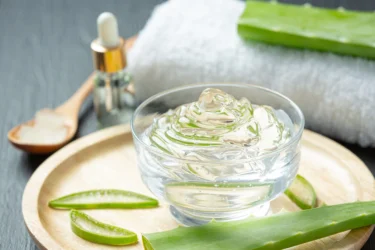
Intake of aloe vera gel helps purify the blood and promote liver function. You need to take fresh aloe vera gel to take care of your fatty liver[3]. However, before using any herbal remedy, it is important to consult or notify your healthcare provider. You can also drink aloe vera juice to help with fatty liver.
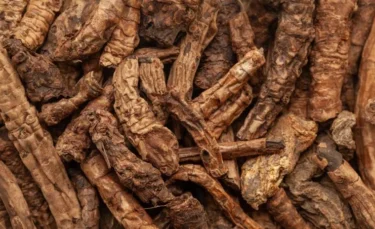
You can take kutki root powder with warm water to manage the changes in the liver due to fatty liver disease[4]. It is important consult your doctor before using herbal remedies, as certain herbs can damage your liver.

Many doctors recommend losing weight to manage the fatty liver disease[5]. Losing weight may help you reduce the fat content in the liver, swelling and fibrosis (tissue damage). It is important to lose weight safely; you should lose no more than half to one kilogram of weight in a week. You can start with regular exercise, which mayhelp you lose weight and reduce fat.

To manage the alcoholic fatty liver disease, you should try quitting alcohol. Alcoholic fatty liver disease is caused due to over-usage of alcohol. Reducing the use of alcohol might help you manage and reverse fatty liver[6]. If you face difficulty quitting alcohol, you might get help from a therapist or take part in an alcohol recovery program.

Fats are high in calories. Consuming more fats can increase your chances of developing obesity. Obesity is one of the risk factors for fatty liver[7]. It is advised to avoid saturated fats and trans fats and add unsaturated fats to your diet, such as omega 3 fatty acids, to get rid of fatty liver disease. Fish is one of the chief sources of omega 3 fatty acids. You can try fish like herring, salmon and mackerel to get sufficient omega 3 fatty acids. Seeds like flaxseeds and chia seeds also contain plenty of omega 3.
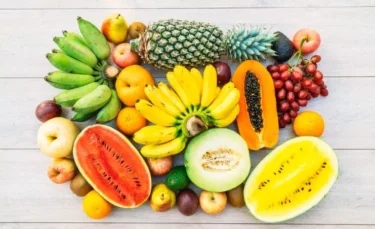
Fruits and vegetables are foods with a low glycemic index. Foods with a low glycemic index are less likely to cause a spike in your blood sugar levels. Eating fruits and vegetables will keep your blood sugar under control and help you manage the fatty liver disease.
You need to avoid consuming sugar in high amounts. Managing blood sugar levels may help to deal with fatty liver disease. Avoid foods with a high glycemic index, for example, white rice, white bread, and potatoes. Consumption of foods and drinks that contain high amounts of sugar, especially fructose, should be avoided. Fructose is a simple sugar used to sweeten soft drinks, sports drinks, and sweetened juices and drinks. You also need to consume less sugar at home. The table sugar, scientifically called sucrose, is rapidly converted to fructose and glucose during digestion.
Involving fibre in your diet has numerous health benefits, like keeping the cholesterol under control, keeping the body weight under control, and stabilising the blood glucose levels. Some important sources of dietary fibre include nuts, seeds, wholegrain foods, oats, barley, lentils, peas, and soy. Keeping the body weight under control may help you manage the fatty liver disease and reduce other complications.
Remain vigilant about monitoring your liver enzyme levels in regular blood test reports. Abnormal levels of liver enzymes can serve as indicators of liver conditions such as fatty liver disease. If you notice any irregularities, consult a doctor, who may also recommend additional imaging tests such as liver ultrasonography or liver fibroscan, if necessary. Early detection can help reverse the condition, if not addressed timely the changes may become irreversible leading to serious complications
Dr. Arpit Verma, MBBS, MD (Pharmacology)
Also Read: Signs You May Have Liver Stress
In most cases of fatty liver, there are no symptoms involved; because of this, it becomes difficult to diagnose this disease. You might not experience any symptoms unless the disease has progressed to liver cirrhosis (a late-stage liver disease in which healthy liver tissue gets replaced with scar tissue). If you notice:
You should immediately contact your health care provider.
Also Read: Simple Home Remedies for Frequent Urination
Fatty liver is the condition in which fat builds up in the liver cells. You might not notice any symptoms associated with fatty liver unless the disease has progressed to a severe condition called cirrhosis. One good news is that you can manage fatty liver by taking caution and losing weight. You can also make use of home remedies like aloe vera or kutki to manage fatty liver disease. Exercising and following a proper diet are some other ways to manage fatty liver.
Fatty liver is difficult to diagnose, but if you notice symptoms like nausea, abdominal pain, swollen legs and abdomen and mental confusion accompanied by weakness, you should contact your doctor immediately.
Also Read: What is Hepatitis A? Causes, Symptoms, and How It Spreads
The liver can repair itself. Therefore, if you can avoid the factors causing your fatty liver, you can reverse fatty liver disease. For this, it is important that you consult your doctor and get proper guidance.
Maintaining your overall health is the best way to prevent fatty liver disease. Do things that keep you healthy, such as maintaining a healthy body weight, exercising regularly, and limiting alcohol consumption.
People with non-alcoholic fatty liver disease can develop complications like liver cirrhosis and liver cancer. Liver cirrhosis can lead to liver failure, which requires a liver transplant. Those suffering from alcoholic fatty liver disease can develop complications like alcoholic hepatitis and cirrhosis.
Herbal remedies to manage fatty liver include aloe vera gel and kutki root. Intake of aloe vera gel enhances liver functions, whereas kutki root powder with warm water can help manage fatty liver. Herbal remedies can also cause damage to the liver.3 Therefore, it is important that you consult your healthcare provider before using these herbal remedies. Your doctor can guide you about the possible treatments for fatty liver.
Being overweight is one of the factors that puts you at high risk of developing fatty liver disease. You need to maintain a healthy body weight to stay healthy.
Liver cirrhosis is the result of severe damage to the liver. Fatty liver disease, if left untreated, can progress to liver cirrhosis. The healthy tissues of the liver are replaced by hard scar tissues. Liver cirrhosis can slow down or completely block liver functions. It can progress to liver cancer or liver failure.
Disclaimer: The information provided here is for educational/awareness purposes only and is not intended to be a substitute for medical treatment by a healthcare professional and should not be relied upon to diagnose or treat any medical condition. The reader should consult a registered medical practitioner to determine the appropriateness of the information and before consuming any medication. PharmEasy does not provide any guarantee or warranty (express or implied) regarding the accuracy, adequacy, completeness, legality, reliability or usefulness of the information; and disclaims any liability arising thereof.
We stare at our computers and phones for long hours all day and sleep in different positions at night, yet wonder why our necks ache. It’s obvious that our poor posture and work habits are to blame. Neck pain is not a new complaint and is becoming even more common due to our lifestyles1. However, our habits are not the sole culprit; neck pain might be caused by an underlying medical condition as well2. In most cases, the reason for the pain remains unknown. Sometimes it may resolve in a week or two (acute) or might even last for longer than three months (chronic). Continue reading to find out more1.
The difficulty that we experience while moving our head, often described as neck stiffness or soreness, may be due to the build-up of tension in the muscles of the neck2. This can be caused by:
Did you know?
Neck pain is a condition that is not usually overlooked. Here are a few symptoms that you might notice:
Generally, the symptoms of neck pain gradually fade away. As they go away, they might come back too. The discomfort and pain may cause you to avoid activities, fearing injury or worsening of the condition1.Let’s not let a pain in the neck disturb our daily activities. Here are some home remedies for neck pain that you can try.

The first and foremost home remedy is to apply ice and heat onto the neck. This is very simple to follow. Cold ice, either directly or in an ice bag, should be applied to obtain relief from the stiffness of the neck. For the first two to three days, ice is to be applied; after that, heat can be applied. To apply heat, you may use hot packs, hot compresses or even hot showers4.

Massaging the neck gives instant relief. You can give this remedy a shot and see for yourself. Any type of massage may be beneficial when the right area is massaged. Finding the painful areas and applying pressure to them is the key. The only thing that we need to keep in mind is to keep the massage movements directed towards the heart. There are chances of heart valves getting damaged if too much pressure is applied in the wrong direction, i.e. away from the heart4.

A few yoga poses and mild stretching exercises can help decrease the tension and ease the stiffness of the neck. A few of the exercises include bringing your ears to your shoulders, squeezing both of your shoulders at the shoulder blades, rotating your shoulders backward, pushing your head backwards, etc4.These simple exercises may alleviate your pain, so try them and see if they work for you.
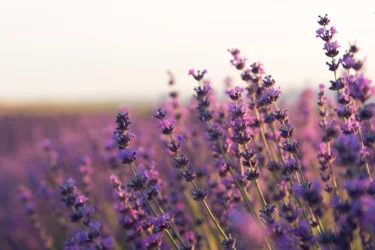
Researchers have found that lavender oil used along with acupressure is effective in relieving neck pain5. You can use lavender oil by diluting it in another carrier oil of your choice and using it to massage the neck gently.
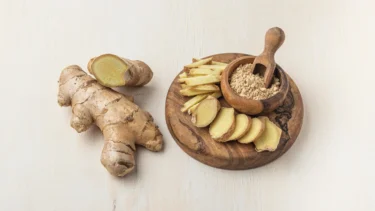
Ginger has various medicinal properties. In an animal study, it was found that the extract of dried ginger and dried gingerol-enriched extract were both effective in alleviating pain and inflammation (analgesic and anti-inflammatory activity)6. You can use ginger directly and also include it in your diet. You may use dried ginger powder in food or use ginger oil to apply over your neck.
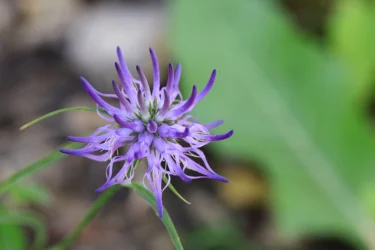
Devil’s claw is a plant that is known for its medicinal properties. It is native to South Africa. The part of the plant used for medicinal purposes is the root tuber. It is particularly used for the management of pain. Traditionally devil’s claw has been used in the form of decoctions for pain relief7. It is usually used as tablets, capsules, liquid extracts, or can be used to make tea. The beneficial effects of devil’s claw for joint problems and muscle problems (common causes of neck pain) are quite evident, but there is more evidence needed in the form of research and studies.
Also Read: Home Remedies For Back Pain By Dr. Siddharth Gupta
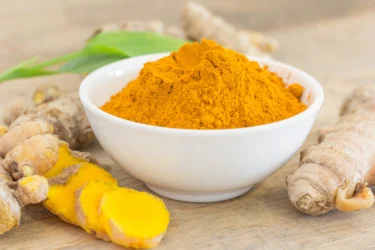
Turmeric, also known as Haldi, and the compounds derived from it have properties that cause the reduction of inflammation (anti-inflammatory property)8. You can use turmeric for neck pain by mixing a little bit of turmeric powder with warm milk and drinking it. You can also make a semisolid paste of it by adding a little water and applying it to the neck.
Also Read: Home Remedies To Cure Bad Breath Naturally
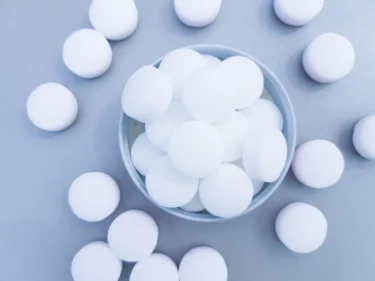
Camphor has been used in the preparation of many balms. It has been in use for ages for the management of pain, especially arthritic pain and muscle pain, which commonly leads to neck pain. The pain-relieving action of camphor is due to its activity in blocking pain receptors. Its action was seen to provide long-term pain relief in one of the studies9. You can use camphor in the form of oil for application over the neck.
Text neck syndrome due to mobile phones is the most common cause of neck pain these days, what I have observed that many patients who were not responding to conventional treatment got benefitted by taking acupuncture therapy sessions.
Dr. Nikhil Yadav, MBBS MD, CCEBDM
You need to be vigilant and mindful of a few situations in which you need to contact your healthcare provider immediately and seek help. Seek medical help if:
Also Read: Natural Home Remedies for Leg Pain
Neck pain can cause great discomfort and restriction in our daily activities. It can occur due to constantly staring at screens, poor posture, stretching in the wrong way while exercising, etc., and you can feel a sharp, stinging ache in your neck due to it. Knowingly or unknowingly, you might focus on the pain and fear of moving around, which indeed causes more suffering. It is wise not to get stuck in the pain and look for remedies to deal with it instead. Try out a few home remedies such as ginger, turmeric, lavender, camphor, etc., and free yourself from neck pain.
Also Read: Effective Home Remedies for Swollen Legs
Yes, heat can be applied to the neck after two or three days of applying ice when you experience neck pain4.
Neck pain can last for about one or two weeks (acute). It can also last for months together (chronic)1.
No, there are no reports of neck pain being caused by the deficiency of vitamin A.
Yes, remaining active is recommended when you have neck pain, and exercises of the neck can even be helpful in relieving the pain1.
No, there are no published reports claiming the association of loss of hair with neck pain.
1. Informedhealth.org. Neck pain : Overview [Internet]. cologne, Germany: Institute of Quality and Efficiency in Health Care (IQWiG) 2006; Available from: https://www.ncbi.nlm.nih.gov/books/NBK338120/
2. A.D.A.M Medical Encyclopedia. Neck pain [Internet]. Vol. 2008, National Institue of Health/ National Library of Medicine. 2008 [cited 2022 May 9]. Available from: https://medlineplus.gov/ency/article/003025.htm
3. John Hopkins Medicine. Neck Pain and Myelopathy [Internet]. John Hopkins Medicine. 2022 [cited 2022 May 9]. Available from: https://www.hopkinsmedicine.org/health/conditions-and-diseases/neck-pain-and-problems
4. Interview, Bang A. How to Get Rid of a Stiff Neck Stiff neck remedies to try [Internet]. Cleaveland clinic. 2021 [cited 2022 May 9]. Available from: https://health.clevelandclinic.org/do-you-have-a-stiff-neck-try-these-simple-remedies/
5. Koulivand PH, Khaleghi Ghadiri M, Gorji A. Lavender and the Nervous System. Evid Based Complement Alternat Med [Internet]. 2013 [cited 2022 Jan 31];2013. Available from: https://www.ncbi.nlm.nih.gov/pmc/articles/PMC3612440/
6. Bode AM, Dong Z. The amazing and mighty ginger [Internet]. Herbal Medicine: Biomolecular and Clinical Aspects: Second Edition. 2011. p. 131–56. Available from: https://www.ncbi.nlm.nih.gov/books/NBK92775/
7. Brendler T. From bush medicine to modern phytopharmaceutical: A bibliographic review of devil’s claw (harpagophytum spp.). Pharmaceuticals [Internet]. 2021;14(8):1–56. Available from: https://pubmed.ncbi.nlm.nih.gov/34451822/
8. Daily JW, Yang M, Park S. Efficacy of Turmeric Extracts and Curcumin for Alleviating the Symptoms of Joint Arthritis: A Systematic Review and Meta-Analysis of Randomized Clinical Trials. J Med Food [Internet]. 2016;19(8):717–29. Available from: https://www.ncbi.nlm.nih.gov/pmc/articles/PMC5003001/pdf/jmf.2016.3705.pdf
9. Chen W, Vermaak I, Viljoen A. Camphor-A fumigant during the black death and a coveted fragrant wood in ancient egypt and babylon-A review [Internet]. Vol. 18, Molecules. 2013. p. 5434–54. Available from: https://www.ncbi.nlm.nih.gov/pmc/articles/PMC6270224/pdf/molecules-18-05434.pdf
10. Kazeminasab S, Nejadghaderi SA, Amiri P, Pourfathi H, Araj-Khodaei M, Sullman MJM, Kolahi AA, Safiri S. Neck pain: global epidemiology, trends and risk factors. BMC Musculoskelet Disord. 2022 Jan 3;23(1):26. doi:10.1186/s12891-021-04957-4. Available from: https://pmc.ncbi.nlm.nih.gov/articles/PMC8725362/
Disclaimer: The information provided here is for educational/awareness purposes only and is not intended to be a substitute for medical treatment by a healthcare professional and should not be relied upon to diagnose or treat any medical condition. The reader should consult a registered medical practitioner to determine the appropriateness of the information and before consuming any medication. PharmEasy does not provide any guarantee or warranty (express or implied) regarding the accuracy, adequacy, completeness, legality, reliability or usefulness of the information; and disclaims any liability arising thereof.
Links and product recommendations in the information provided here are advertisements of third-party products available on the website. PharmEasy does not make any representation on the accuracy or suitability of such products/services. Advertisements do not influence the editorial decisions or content. The information in this blog is subject to change without notice. The authors and administrators reserve the right to modify, add, or remove content without notification. It is your responsibility to review this disclaimer regularly for any changes.
Next Page »« Previous Page